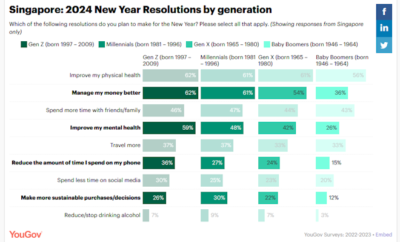
Health x Wellness
Female Sexual Health Concerns With Dr. James Lee
We interview Dr. James Lee (JL), Obstetrician and Gynaecologist at Astra Women Specialists, to share about common sexual health issues faced by both menopausal and post-menopausal women in Singapore.
As the member of the International Urogynecology Association, the International Continence Society, and the International Society of Sexual Medicine, Dr. James Lee is certainly no stranger to sexual health issues faced by women in Singapore. He shares with The Active Age about some intimate concerns menopausal and post-menopausal women face, and what precautions they should take if they want to remain sexually active.
AA: Can you share with us some of the common problems and concerns Singaporean women facing menopause have?
JL: Unlike other ethnic groups such as Caucasians or Afro-Caribbeans, Asians do not complain excessively of the classical menopausal symptoms such as hot flashes, disturbed sleep, mood swings, lower urinary tract symptoms or reduced sexual function. Unlike the two thirds that are commonly reported in other populations, only about one fifth of Asians seek help for symptoms related to menopause. The differences may be related to neuro-physiological adaptations or psycho-cultural characteristics. That is, Asians may be more tolerant, and accept the symptomatic inconveniences, attributing to changes due to ageing.
AA: And specifically, with regards to their sexual health?
JL: Sexuality and sexual health is not a priority amongst the older generation of Singapore, especially the local Chinese. We cannot ascribe it to racial differences, but more probably to social ethos arising from the community’s pragmatic approach to achieving economic excellence and maintaining fiscal wealth. Many women cease bedroom activity in their mid-forties and the impact of the menopause eases into their lives without a ripple. The declining ovarian hormonal function contributes to reduced libido (sex drive), reduced ease to be sexually aroused, inadequate orgasmic experience and pain during intercourse.
AA: Would you encourage women going through menopause or post-menopause to remain sexually active?
JL: Sexual health is integral to global human well-being. The appropriate amount of sexual activity within a safe relationship enhances the state of happiness in the couple. The intimacy achieved in sexual activity promotes emotional security and frees the individual to embrace other social experiences. Enjoying sex in the menopausal years should be encouraged. It should be a natural aspect of ageing together.
AA: Are there any health precautions they should look out for if they would like to remain sexually active?
JL: For menopausal women engaging in healthy sex, it is important to participate in long gentle foreplay. It is essential to build up the arousal, relax the muscle and improve the lubrication. Reducing discomfort and pain during and after sex will encourage future participation. Poor sexual script will end up with pain, bleeding, infection of the vagina and urinary tract. Sufficient daily fluid hydration, apart from its other benefits, will also prime the urogenital tract – reducing the risk of vaginal and urinary tract infections.
AA: What are some ways they can overcome dryness and pain during intercourse, and how can lubricants help with this?
JL: Vaginal dryness stems from deficient mucosal exudation of the vaginal skin, and reduced glandular discharge from the cervix and periurethral area. The reduced hormonal effect and poor vascularization from menopause account for much of the dryness. Oral or topical hormonal replacement treatment is a major remedy for vaginal dryness. The use of good lubricants can certainly alleviate the symptoms during sexual activity. Studies are conducted at the moment to see if vaginal laser therapy can improves vascularity besides improving collagen remodelling.
AA: Are there any potential side effects from using lubricants in the long-term?
JL: Lubricants are formulated for local effect and not for absorption into the skin. The ideal lubricant should be water based, and have the quality to withstand drying for a period of time. Where the elements are minimal, the risk of substance allergy will be minimized.
AA: With your female clients that share with you about the dryness and pain they experience during intercourse; what are some of their responses towards the usage of lubricants? For example, are they receptive towards these products?
JL: While many embrace the use of lubricants, some found it too much of a bother and chose not to have sex entirely. There are always multi-factorial reasoning to the avoidance of sex. If there is a healthy palpable desire to enjoy sex and intimacy, the women will use the various options available to achieve it, for herself, her partner and the relationship.
AA: As for women who are in the post-pregnancy stage, are there similar sexual health issues they may experience as well?
JL: The immediate few months following the delivery of a baby is challenging to the mother and the father. If it is the first-born, the new parents are usually caught up with childcare and often neglect their sexual needs. In fact, the mother suffers diminished sex drive due to fatigue, perineal discomfort, fear of pain, and cultural taboos. The low sexual expression post-delivery arises from quite a different set of social, physiological and psychological factors as compared to the menopausal women. There is however, the hormonally-induced vaginal dryness that strikes the same chord as the menopausal women.
AA: Thank you for sharing, Doctor.
JL: You’re welcome.
To get a sense of what a “good lubricant” could be, read our article here.









